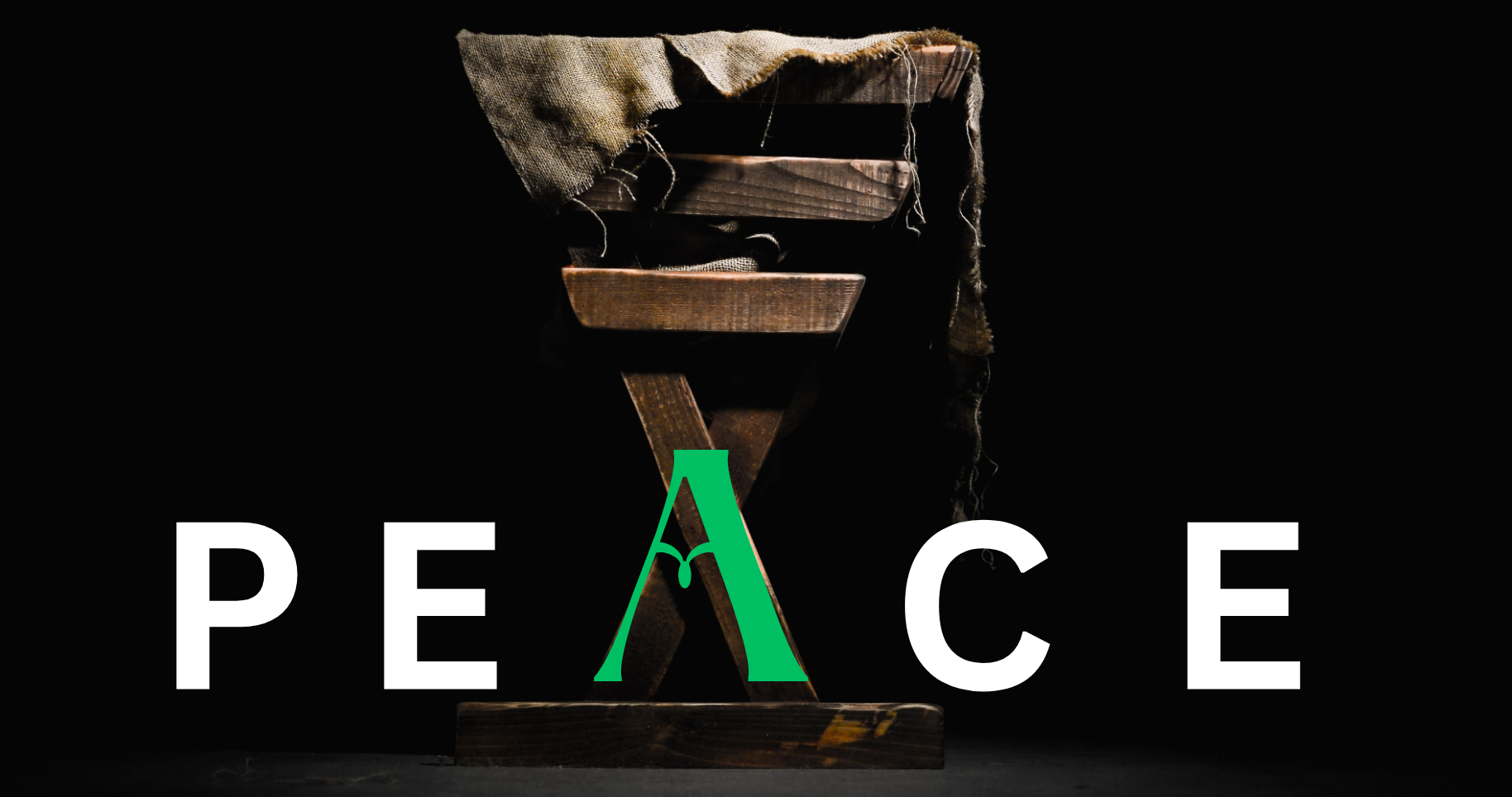
Sermon – December 8th, 2024 – Second Sunday in Advent
Hope Lutheran Church, Port Coquitlam BC
Text: Luke 3; Psalm 66; Malachi 3; Philippians 1
Theme: 2 – Peace
Sermon series: “Advent’s Gifts”
_______________________________
Introduction: Peace. We all yearn for it. Sometimes, it may be about financial peace, perhaps struggling with mortgage payments or another financial challenge. All you want is to figure out how to find peace in that area of life. Another area might be personal peace—those moments when things are going on in your mind or your professional life that disturb your inner peace. You long for a sense of calm but can’t quite find it.
At times, it’s about the state of the world. We hear about wars, unrest, and violence, and it’s easy to feel insecure. We begin to wonder, “What’s next? Could there be a nuclear war around the corner? Is North America going to be drawn into a conflict like we’ve seen in the past?” This fear can overwhelm us, even erode our sense of spiritual peace.[1]
In our spiritual life, the question that often disturbs our peace is: Am I right with God? Will God really forgive me? We look back on our past mistakes, thinking they might be too much to overcome. And then, when you see how the Christian faith is being challenged in the world, it’s easy to feel insecure. You wonder, “Will life get harder and harder?” And indeed, Jesus himself warned us that it would. But even in the midst of that, there is something that disturbs our peace—something that touches our heart and soul and even keeps us up at night. All of these fears stem from our feelings, especially when it comes to our spiritual peace.
So much of our unrest comes from the way we feel about things—how we feel about ourselves, how we feel about the world, and how we feel about our relationships. When those feelings don’t match what we think they should be, unrest fills our hearts.
But what if peace isn’t about feeling? What if peace is about knowing?
What if peace is about something more stable, more secure, and more grounded—something that goes beyond our fleeting emotions? Let me share a short story to illustrate this.
Picture a woman preparing for an important work presentation. She feels the weight of the world on her shoulders, juggling deadlines and personal life struggles. Her days are packed with anxiety, and she becomes overwhelmed. She can’t see how she will get everything done.
But then, her phone rang. It’s a co-worker she trusts. The co-worker reminds her, “I’ve got it. You don’t need to worry. It’s all handled.” Suddenly, the relief floods came in. The burden that was once hers is no longer hers to carry. Her co-worker has it under control. The tension fades, and she realizes she doesn’t need to bear the weight on her own.
This, I believe, illustrates the peace that we are called to know in Christ. Peace isn’t just about feelings; it’s about knowing that someone is carrying the burden for you. This is especially true in our spiritual lives. We can become so focused on trying to get everything right—reading our Bibles enough, praying enough, helping others enough, going to church, giving offerings… While all these things are important, the Christian life begins in the assurance that someone else is carrying the burden for us. All too often, our lack of peace stems from forgetting this simple truth.
This peace comes from knowing, as we read in Romans 5, that we have been saved by faith, and we have peace with God through our Lord Jesus Christ. Jesus has reconciled us with God. That is the root of our peace—the peace that begins in our hearts and minds, knowing that we do not have to carry the burden alone. We were reconciled to God, not because of our own efforts, but because Christ carried the burden for us.
Now, you might be thinking, But I don’t always feel this peace, Pastor. And I get it—I don’t always feel it either. We don’t always feel everything all the time. But the peace we have in Christ is not based on our feelings; it is something we know. It is written in Scripture, and it is guaranteed. No one can take that peace away from us.
The Bible texts for today also help us remember the peace that comes from knowing who God is and how He carries us through life. Psalm 66 reminds us that God’s deeds are awesome. He has acted in the past, and He continues to act in our lives today. In Malachi 3, we are assured that God does not change. He remains the same, offering us His unchanging love and presence. Also, that God refines us, just as gold is refined by fire, so that we can grow in faith.[2]
In Luke 3, we hear of God fulfilling His promises through the prophecy of John the Baptist. God kept His word then, and He continues to keep His promises today. Philippians 1:2 says, He who began a good work in you will bring it to completion. It’s not about us trying to complete the work ourselves. It is God who carries us, from beginning to end.
This is the peace we know: God is with us, and He is carrying the burden. He is the one who began the good work in us, and He will bring it to completion. He is the one who continues to refine us, to strengthen us, and to carry us through every season of life.
And this peace isn’t just something abstract. It impacts our daily lives, our relationships, and our actions. As the Book of Concord teaches:
Church Unity: Peace unites us in Christ’s body, connected by doctrinal clarity and teaching. “Christian concord, unity, and peace in the church should be established, preserved, and protected through the pure teaching of God’s Word.” (Formula of Concord, Epitome, Rule and Norm)
Worldly Harmony: Temporal peace as a blessing in society and families. “We pray in this petition that God would lead us to acknowledge His will and enable us to do it willingly… granting peace and order.” (Large Catechism, The Lord’s Prayer, Third Petition)
Inner and Temporal Peace: God’s provision and protection give us peace in our daily lives. As the Large Catechism reminds us: “Where there is forgiveness of sins, there is also life and salvation.
Relational Concord: Peace within the Christian community through love and good works.” [3]
We also see that peace affects our personal lives. Sometimes, we have to release control—whether it’s with our children, our work, our relationships, or our worries. We have to trust God and let go. Release control and let God carry it for you. This peace also applies to guilt and shame. When we feel burdened by past mistakes, we can release them to God, knowing that He is there to forgive, heal, and restore us.
In your relationships, remember this: You will stop caring too much about what people think of you when you realize how seldom they do. Many of the things we worry about—the way others perceive us—are often not as important to them as we think. Let go of these anxieties and focus on loving God and loving others. Remember the eighth commandment—put the best construction on everything. This simple act can release much of the inner tension and unrest we carry.
Finally, when we think of world peace and the unrest we see in wars and conflicts, remember what Jesus said: ““Do not fear those who kill the body but cannot kill the soul. Rather, fear Him who can destroy both soul and body in hell “(Matthew 10:28). The most important thing is our relationship with God. No matter what happens in the world, we can rest in the peace that God has given us through Jesus Christ. The most important peace is the peace we have with God. No matter what happens in the world around us, we know that our souls are safe in Christ.
Cc – So, if you forget everything else, remember this:
No Jesus
No Peace
Know Jesus,
know peace.
This peace is unlike anything the world can offer. It’s a peace that surpasses understanding, a peace that carries us through every challenge. When you know Jesus, you know that He carries the burden for you, and that peace will sustain you.
Peace be with you.
Amen.
_____________________________
Possible questions about the message and our answer:
Objection: “You say peace is a gift from God, but what about those who suffer greatly without relief?”
Response:
It’s absolutely valid to struggle with the tension between God’s promise of peace and the very real pain people experience. Suffering does not mean God is absent. The Bible acknowledges pain, grief, and hardship. Jesus Himself experienced profound suffering on the cross and understands our pain intimately. Peace, in the Christian sense, is not the absence of suffering, but the assurance that, in the midst of it, God is present with us, offering His strength, comfort, and ultimate hope. God doesn’t promise to remove all our suffering now, but He does promise to be with us in it, carrying our burdens, and offering us peace that transcends understanding (Philippians 4:7). Even in our suffering, we can rest in the knowledge that God is working, and that one day, He will make all things right.
Objection: “You mentioned Jesus carries our burden, but isn’t that just a platitude when life feels unbearable?”
Response:
I understand how it can feel like a platitude when you’re in the midst of deep pain. The weight of life’s challenges can feel overwhelming, and words alone can feel hollow. But Jesus’ promise isn’t empty. He came into the world, took on human suffering, and gave His life for us. His sacrifice means that we don’t carry our burdens alone—He bears them with us. It’s not just a theological statement, but a lived reality. Jesus is there, sustaining you, offering His presence and love. This doesn’t mean the pain disappears, but it means you are never without hope to keep going, even when you can’t see the way forward.
Objection: “You say peace doesn’t depend on how we feel, but doesn’t that dismiss the reality of our emotions?”
Response:
Not at all—God created us with emotions, and they are deeply real. It’s not about ignoring how we feel, but rather, finding peace that isn’t dependent on fleeting emotions. Christian peace acknowledges our feelings—grief, anger, joy, and everything in between—but it points to something deeper: the truth that God is in control, and that He loves us unconditionally, regardless of how we feel in any given moment. The peace Jesus offers is not one that erases feelings but offers the sense of security and hope, even when emotions are turbulent.
Objection: “How can peace coexist with the call to serve others? Isn’t service exhausting?”
Response:
The peace Christ gives us leads us to serve not out of obligation but out of love and freedom. Serving others is undoubtedly tiring, but it’s also fulfilling. The peace that comes from Christ doesn’t mean we will never feel exhausted, but it does transform how we approach service. In Christ, we find peace in knowing that we are not serving out of obligation or to earn approval, but because He has already served us. Then, our service becomes an extension of His love, rather than something we do out of self-reliance. When we serve with Christ’s peace, our hearts are renewed, even in the midst of weariness. We are never alone in our efforts to love others.
Objection: “The idea of peace through reconciliation with God is comforting, but what if I struggle with doubt and don’t feel reconciled?”
Response:
Doubt is part of the human experience, and it’s okay to struggle with it. The good news of the Gospel is that our reconciliation with God doesn’t depend on how strong our faith is, but on the objective reality of Christ’s work for us. Jesus reconciled us to God through His death and resurrection, and our peace comes from trusting in that truth, not in how we feel at any given moment. In moments of doubt, God invites us to bring our questions and struggles to Him. The peace of reconciliation is not about feeling perfect; it’s about trusting that, even in our doubt, God’s promises remain true.
Objection: “Is peace really possible in this broken world? It feels naïve to think so.”
Response:
It’s natural to question peace in a broken world, where injustice, pain, and suffering are so prevalent. But Christian peace is not about denying the brokenness of the world—it’s about recognizing that God is at work. Jesus came into a world filled with pain and suffering, and He offers peace to a broken world. This peace doesn’t ignore the harshness of life but anchors us in the hope that, through Christ, God is making all things new. One day, He will restore all things and wipe away every tear. Until then, the peace we receive is both a comfort for the present and a hopeful anticipation of the future, knowing that God’s Kingdom will come and make all things right.






